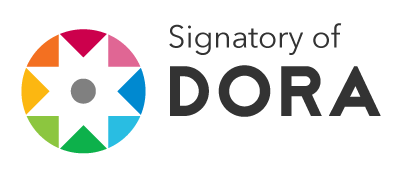Publication ethics
Revista de Estudios Globales (REG) is committed to compliance with the Committee on Publication Ethics (COPE) Guidelines and with the spanish National Statement of Scientific Integrity of CRUE published in 2015.
This page details our policies on academic misconduct, plagiarism, duplicate submission and duplicate publications, authorship and contributorship.
Please ensure you read and adhere to these policies before submitting your article.
Revista de Estudios Globales (REG) requires all authors to adhere to the ethical standards as prescribed by the Committee on Publication Ethics (COPE) which take privacy issues seriously and is committed to protecting your personal information.
Authorship
Inclusions of a person who do not meet authorship requirement or the exclusion of a person who meets the requirement is a violation of this publication ethics.
Originality
In order to avoid ethical violations, journals are committed to only publishing original material that was not published before.
Plagiarism
Plagiarism means the use of any material and ideas developed or created by another person without acknowledging the original source. The decision on whether a manuscript should be rejected because of fraud or should proceed to the peer-review process rests with the handling editor.
If instances of alleged plagiarism are identified by our readers we would encourage them to contact the relevant journal editor.
Duplicate Manuscript
Duplicate publication is publication of a paper that overlaps substantially with one already published, without clear, visible reference to the previous publication
Citation Manipulation
Only the relevant citations should be used in manuscripts. Addition of references which are not relevant to the work is strongly discouraged. Irrelevant self citation to increase one's citation is unethical. Unnecessary citation of articles for the sole purpose of increasing the articles citation is unethical. Unnecessary citation of articles from a particular journal to increase the journals citation is unethical.
Authorship misconduct
Inappropriate attribution of authorship of a piece of scholarly work. This in particular involves any situations when roles of contributors are questionable, e.g. intentional and unjustified authorship changes, adding non-contributors or authorship for sale.
Any cases of suspected authorship misconduct will be investigated and dealt with according to COPE Guidelines.










